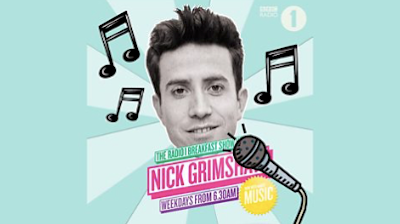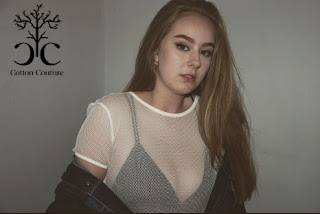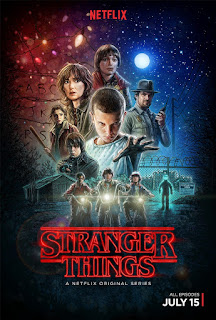Radio 1 Breakfast Show
Institutional Values
(Taken from the BBC website)
Our aim is simple - to enrich people's lives with programmes and services that inform, educate and entertain by being the most creative organisation in the world.
But we don’t focus simply on what we do – we also care how we do it.
We have six values, or standards, which people across the BBC share. They represent the expectations we have for ourselves and each other, they guide our day-to-day decisions and the way we behave.
The BBC’s values:
- Trust is the foundation of the BBC; we are independent, impartial and honest
- We’re truthful and fair in all our dealings. We make decisions based on our values, stick by them and take responsibility for them. We behave with integrity and do what we say we’re going to do.
- Audiences are at the heart of everything we do
- We put audience needs first. We recognise that audiences are not all like us and our friends, so we make sure we know how their needs are changing. And we adapt.
- We take pride in delivering quality and value for money
- We are demanding of ourselves. We ask for help when we need it and know where we need to up our game. We challenge waste and spend money as if it were our own. We channel our energy into making things better and change or stop things that aren’t working.
- Creativity is the lifeblood of our organisation
- We’re brave. We innovate and demonstrate creative ambition, trying new things and embracing new technology. We seek out different perspectives, others’ ideas and opinions. We seize opportunities to train ourselves, develop our careers and try new roles.
- We respect each other and celebrate our diversity
- We respect all our colleagues, whoever they are. We’re honest, direct and always courteous. We challenge others’ ideas but we respect decisions once made. We are ambassadors for our organisation; we speak out if something is not right and deal with it within the BBC.
- We are one BBC; great things happen when we work together
- We work across all our teams to create more for audiences, sharing ideas and involving others to improve them. We make connections inside and outside the BBC and learn from the wider industry.
Audience
Audiences are categorised and measured by RAJAR (Radio Joint Audience Research), which is the official body in charge of measuring radio audiences in the UK. It is jointly owned by the BBC and the Radiocentre on behalf of the commercial sector. Unfortunately subscriptions for the full service are expensive – but a lot of newspaper articles discuss the changing make up of the audience.
The BBC aims to reflect a diverse young audience for Radio 1; its Service License 2016 says it should be: reflecting and representing the whole UK population. BBC Radio 1 should play a part in this purpose amongst its audience, particularly focusing on the diversity of young people in the UK today. Its presenter line-up, music and content should reflect the audience it is targeting. The station should host several live events each year which connect the station directly with listeners that are not served by other areas of the media, particularly in ethnic minorities. These events should reflect the diverse range of music enjoyed by different cultures across the UK. Radio 1 should contribute to BBC Radio’s commitment to ensure that at least one third of relevant expenditure10 is incurred outside the M25 area.’
Reaching audiences
People aged between 15-24 listened to just over 14 hours of radio per week last year - seven hours less than the average adult, and 15% less than they did a decade earlier, according to broadcasting regulator Ofcom. Radio 1 is suffering because its core audience is turning away from live radio. This is largely thanks to the arrival of streaming services.
'Grimmy’s audience has increased from 5.25m to 5.37m listeners. But Radio 1Xtra lost listeners in the same period, dropping from 1.03m in Q3 to 909,000 in Q4'-NME
Though Radio 1 appears to be loosing figures the loss of audience is only accountable to those listening to live radio. With a 15-29 year old demographic the viewings and participation to the show has moved to social media and online variations of the show such as Live Lounge and Facebook ratings. Radio 1’s controller Ben Cooper has argued that the station should not be judged solely on RAJAR figures. ‘Radio 1 is evolving with its young audiences as we live through changing times for traditional radio, so it’s particularly gratifying to see that in addition to around 10 million listeners, we have seen record figures for Radio 1 videos on Facebook with 80 million monthly views, and 1.4 billion total views on Radio 1’s YouTube channel. You can't judge Radio 1 on RAJAR figures alone – just as you can't judge a newspaper solely on physical sales – you have to take into account our digital innovations as well. I’m pleased that Grimmy is doing what I’ve asked of him by keeping his young audience happy and scaring off the over-30s.’ 90% of the dip in Grimshaw's figures were from losing the over-30s.
‘Grimmy is the number one breakfast show in the UK for young audiences and that's all they really care about. Teens are addicted to their phones so you can see why Radio 1 does so well on YouTube and Facebook.’
Explain how radio programmes fulfill the criteria of the institutional values. Refer to The BBC Radio 1 Breakfast Show to support your answer.
The BBC Radio 1 Breakfast show aims to reach their institutional values through creating a quality show with nostalgic and celebrity endorsed elements (such as the dinner lady feature), an informational and educational programme through feature of the news and informative topics, and through quizzes and games that are overall entertaining.
From the BBC website the organisation strives to provide a quality programme that is valued. In an example of the show they achieved this through relatable content featuring established celebrities that the audience are aware of (such as Stormy tweeting about dinner ladies) and quizzes that are relatable to the previous show (which encourages new audiences to continue to listen daily). The show also normalises celebrities by having a weekly feature of 'unpopular opinion' where a live lounge



Comments
Post a Comment